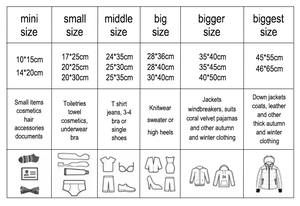Introduction to Lifestyles Brand
A lifestyles brand symbolizes a unique approach to life, intertwining products and services with the values and aspirations of its target audience. These brands aim to embody a specific way of living that resonates with consumers' identities and dreams. By connecting emotionally with their audience, lifestyles brands successfully create a community that shares common interests and values. In today’s fast-paced world, lifestyles brands not only offer products but also curate experiences that enhance everyday life.
Types of Lifestyles Brand
Lifestyles brands come in various categories, each tailored to meet specific consumer needs and desires. Understanding these types can help businesses effectively target their audience. Here are some prominent types:
- Active Lifestyle Brands: Focused on fitness and outdoor sports, promoting a healthy, adventurous lifestyle. Examples include brands that sell sporting goods, activewear, and wellness products.
- Luxury Lifestyle Brands: Emphasizing exclusivity, elegance, and high-quality craftsmanship. These brands often offer products like designer clothing, fine jewelry, and upscale home decor.
- Eco-Friendly Lifestyle Brands: Catering to environmentally conscious consumers, emphasizing sustainability and ethical practices. Products may include reusable items, organic food, or sustainable fashion.
- Tech Lifestyle Brands: Integrating technology into daily life, focusing on innovation and connectivity. They offer gadgets, smart home devices, and wearable technology.
Function and Features of Lifestyles Brand
The core purpose of a lifestyles brand is to integrate seamlessly into consumers' lives, enhancing their daily routines. The following functions and features are typically found in successful lifestyles brands:
- Emotional Connection: Lifestyles brands create a strong emotional bond with consumers by aligning with their values, aspirations, and community.
- Quality and Craftsmanship: These brands often focus on high-quality materials and exceptional craftsmanship, ensuring products are durable and reliable.
- Innovation: Many lifestyles brands emphasize cutting-edge technology and modern design, appealing to consumers' desire for the latest trends.
- Content Marketing: Engaging narratives and compelling content often accompany lifestyles brands, helping to shape consumer perceptions and brand identity.
Applications of Lifestyles Brand
The applications of lifestyles brands are extensive, penetrating various sectors and markets. Here are a few common applications:
- Consumer Goods: Many lifestyles brands operate within the consumer goods sector, providing products that range from food and beverages to clothing and accessories.
- Experiential Marketing: These brands often host events, workshops, or community gatherings that foster engagement and build brand loyalty.
- Social Media Influence: Lifestyles brands leverage social media to showcase their identity and connect with their audience, driving conversation and brand awareness.
- Sustainable Practices: More brands are adopting eco-conscious practices and products, appealing to environmentally minded consumers looking to make responsible choices.
Advantages of Lifestyles Brand
The world of lifestyles brands is ripe with opportunities, offering multiple advantages for both consumers and businesses. Here are some key benefits:
- Customer Loyalty: By fostering a sense of community and belonging, lifestyles brands can cultivate a loyal customer base that repeatedly engages with the brand.
- Increased Marketability: A strong brand identity allows for more straightforward marketing strategies and effective audience targeting.
- Differentiation: Lifestyles brands stand out in saturated markets by offering unique value propositions and relatable experiences that resonate with consumers.
- Potential for Growth: As lifestyle trends evolve, brands can adapt and innovate their offerings, making them poised for scalable growth.














































